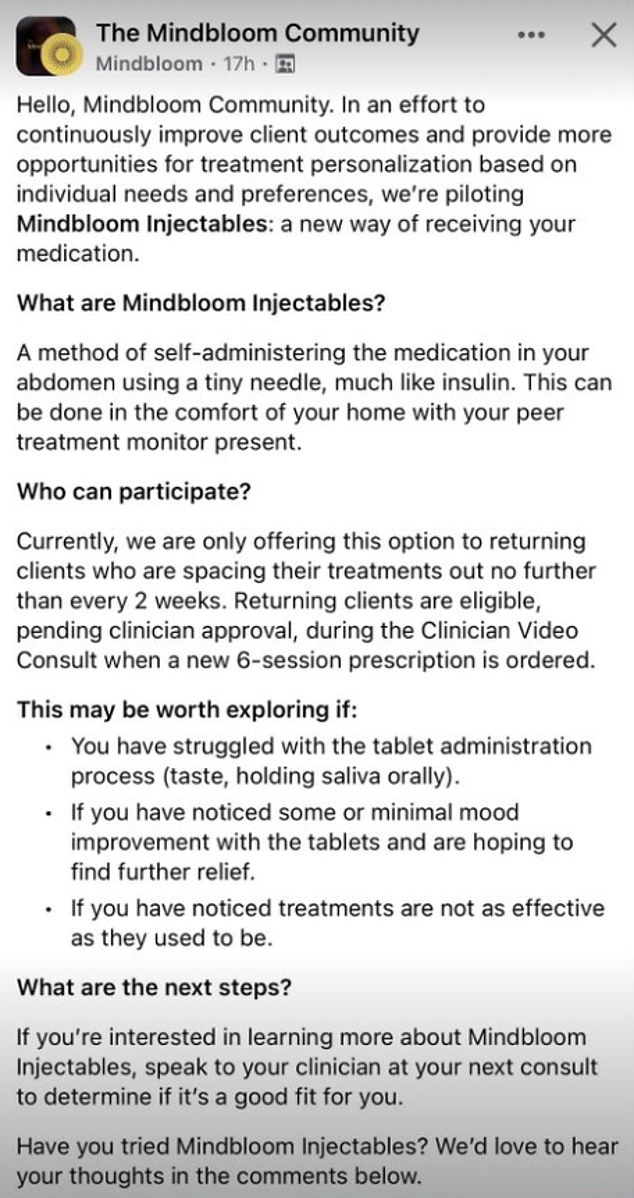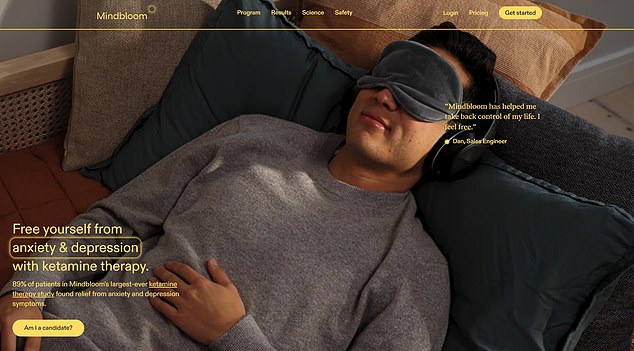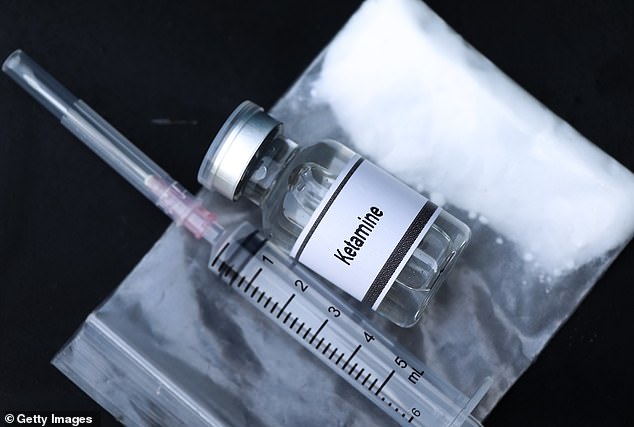Doctors issue stark warning over mail-order ketamine therapy as clinics start posting drug as liquid injectable
Top doctors in the US have issued a chilling warning about the rise of mail-order ketamine therapy after clinics began mailing the drug as an injectable product.
Tens of thousands of Americans are using this sedative as more and more research shows that it can be used to treat depression.
But experts have raised alarms about companies marketing the drug to vulnerable customers after cursory online checks.
Doctors say administering the sedative unsupervised, despite being legal, is “a recipe for disaster.”
Now the American Society of Physicians, Psychotherapists, and Practitioners (ASKP3), the largest think tank for ketamine practitioners, has warned against companies that have started offering the drug as an injectable product.
In this photo posted to social media site Reddit, it claims a mail-ordered ketamine therapy kit was sent to a customer, containing syringes, alcohol swabs and a vial of ketamine

The tragic death of Matthew Perry, who overdosed on ketamine, has put the drug’s soaring popularity in the spotlight
Previously, clinics largely offered mail-order prescriptions in the form of lozenges and nasal sprays.
However, ASKP3 said it was aware of at least one telehealth company offering “liquid injectable ketamine on an ongoing basis with syringes intended for subcutaneous administration in unsupervised home settings.”
The association said in a statement that the practice “can be harmful to patients and poses a significant risk for misuse, abuse and diversion.”
It comes after DailyMail.com revealed the ease with which customers can now access the sedative, which is sometimes abused as a street drug, after a reporter signed up for an online offer within minutes.
After an online survey and a brief virtual consultation, our correspondent was offered a subscription that cost $129 per month and included a pack of ketamine lozenges.
Another online clinic, Mindbloom, offers ketamine therapy via mail order for up to $359 per month.
The website states that the ‘Bloombox’ package contains ‘essentials’ such as ‘an eye mask, diary and blood pressure monitor’.
It is not explicitly stated in which form the drug is available, but an icon indicates that it is a lozenge.
The company came to the attention of AKSP after social media posts suggested it was offering ketamine as an injectable product.
Jules Evans, a psychedelic therapy expert at Queen Mary University of London, shared a post from The Mindbloom Community, a private Facebook group, saying the company was piloting ‘Mindboom Injectables’.
The message, which appears to come from Mindbloom itself, states that customers can now self-administer ketamine into their abdomen using a small needle, ‘in the comfort’ of their own home.
It added that this should be done with a ‘peer treatment monitor in place’.
Posts on Reddit from people claiming to be Mindbloom customers said they had been offered the injectables if they had failed to achieve a “dissociative state” from the lozenges they had been given.

The Mindbloom Community, a closed Facebook group, says the company is testing ‘Mindboom Injectables’ for its customers

Mail-order clinics, including Mindbloom, which offers at-home ketamine therapy for up to $359 a month, have been accused by medical experts of endangering patient safety

There are indications that ketamine is on the rise both recreationally and medicinally
One user posted a photo of what they said was a Mindbloom mail order kit, which came with syringes, alcohol wipes and a vial of ketamine.
The injectables would cost an additional $139.
ASKP3 said in its statement that “sending syringes and liquid ketamine to patients for home use falls substantially outside community norms and is highly risky at both the individual and community level.”
It was said that such injections could cause a “painful” sterile abscess that could last for weeks and even require surgery.
DailyMail.com has contacted Mindbloom for comment.
The tragic death of Matthew Perry, who overdosed on ketamine, has put the drug’s increasing popularity in the spotlight.
There is evidence that it is on the rise both recreationally and medicinally, as more and more Americans look to alternative forms of therapy.
In October, the Food and Drug Administration (FDA) expressed concern about the trend.
It warned that the drug, which is approved as an anesthetic, is not approved for the treatment of psychiatric disorders.
“The FDA is aware that compound ketamine products have been marketed for a wide range of psychiatric stress disorders (e.g., depression, anxiety, post-traumatic stress disorder … and obsessive-compulsive disorder). However, the FDA has not determined that ketamine is safe and effective for such uses,” the statement said.
Using ketamine for these treatments without monitoring “may put patients at risk for serious adverse events,” the agency added.
Mindbloom’s website claims that 89 percent of its clients report improvements in anxiety and depression.
But the figure comes from a study in which more than half of participants did not report follow-up data.

Perry was known for using ketamine therapy. His last known infusion was a week and a half before his death. The coroner noted that the ketamine found in his bloodstream could not be from that session, as it typically clears from the system within hours.
The study, titled “At-home, sublingual ketamine telehealth is a safe and effective treatment for moderate to severe anxiety and depression,” drew public criticism from Dr. Sanacora.
In a written response, the professor and his Yale colleague Dr. Samuel Wilkinson said they objected to the paper’s title “for several reasons,” adding that “the authors’ conclusions go far beyond the data.”
They continued: ‘Potential scenarios of concern with home administration of ketamine include drug abuse and dysphoric reactions that can leave patients in an anxious and paranoid state without appropriate monitoring, leading to harm to themselves or others.’
The letter from Dr. Sanacora was made public in August 2022, but Mindbloom still proudly calls the article on its website “the largest ketamine therapy study to date.”
Mindbloom’s Chief Strategy Officer, Mike Petegorsky, previously told DailyMail.com that online clinics make ketamine therapy “accessible and affordable for those in need.”
“I understand the concerns about ketamine therapy at home, but I have not seen any data to support those concerns,” he added.
